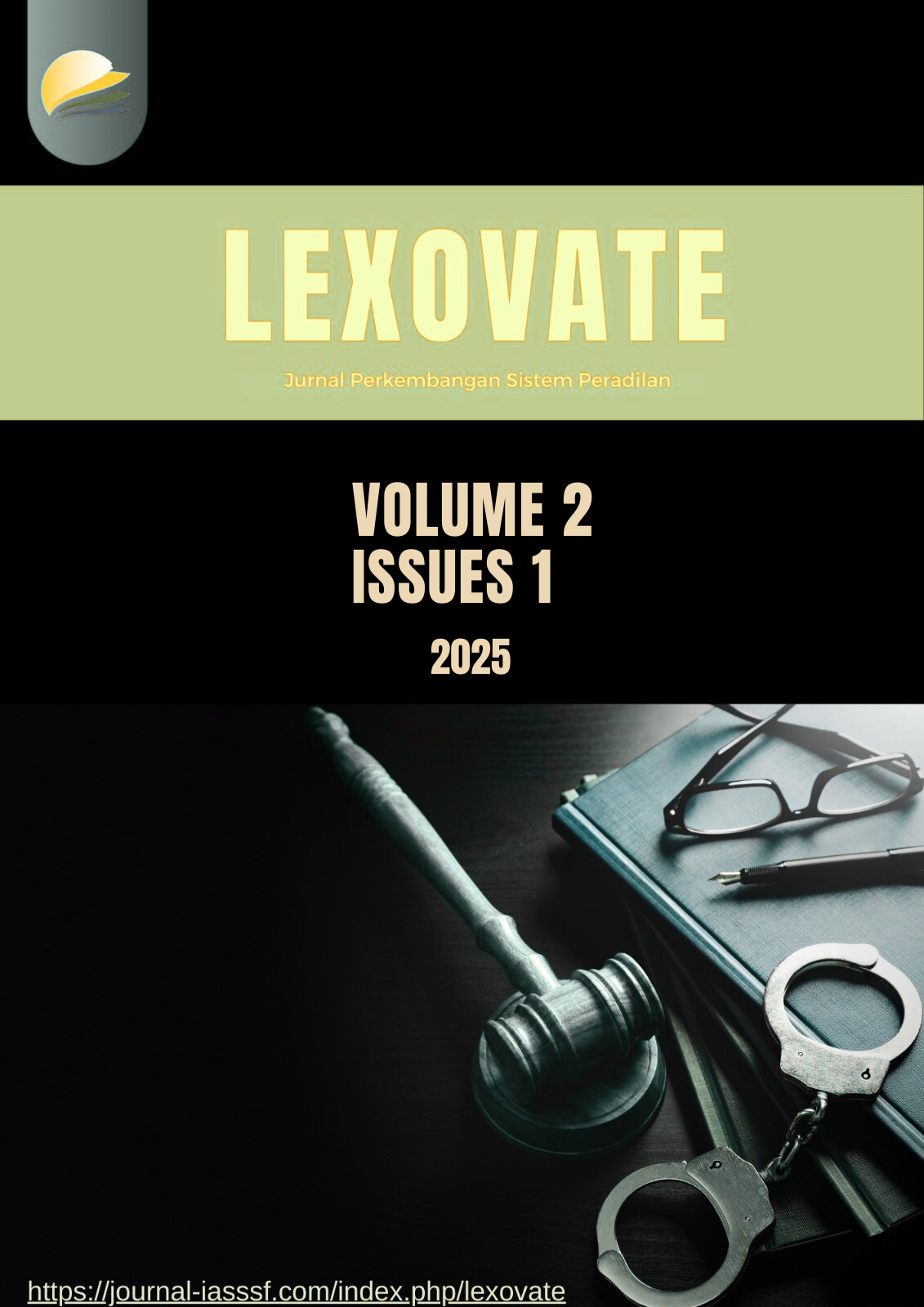The mechanism for implementing judicial pardon in the criminal justice system in Indonesia: Comparative study with various countries
Keywords:
application of law, decision, judicial pardon, legal remedy, verdictAbstract
Background: This study discusses the mechanism of implementing judicial pardon in the criminal justice system in Indonesia with the legal basis of Law Number 1 of 2023 concerning the Criminal Code (Kitab Undang-Undang Hukum Pidana/KUHP 2023). Although it has been regulated in the 2023 Criminal Code, this concept is not balanced with formal provisions in the Criminal Procedure Code (Kitab Undang-Undang Hukum Acara Pidana/KUHAP). Methods: This study is through functional comparative legal with various countries regarding laws and regulations, literature, and other legal materials in analyzing the mechanism of judges in granting judicial pardon, especially regarding the form of decisions and their legal remedies against decisions containing judicial pardons that are in accordance with the regulations and application of judicial pardon in Indonesia. Findings: Although the validity of judicial pardon is only included in the 2023 Criminal Code, the existence of the application of this judicial pardon has existed in criminal justice practices in Indonesia. In addition, there are several countries that have regulated the application of judicial pardon formally in the Criminal Procedure Code, especially the form of the decision and its legal remedies. Conclusion: There is an urgency to regulate the mechanism for imposing judicial pardon in the Criminal Procedure Code which includes the form of the decision on the granting of judicial pardon which is regulated as a special decision and legal remedies against the judicial pardon decision in the form of cassation. Novelty/Originality of this article: This study comprehensively conducts a comparative study with several countries that have regulated the mechanism for applying judicial pardon to find the right formulation for applying judicial pardon to be implemented in Indonesia.
References
Abidin, A. Z., & Hamzah, A. (2010). Pengantar Dalam Hukum Pidana Indonesia. Yarsif Watampone.
Anwar, A. (2024). Pemaafan Hakim (Rechterlijk Pardon) Dalam Hukum Pidana Dan Pemidanaan Dalam Perspektif Pancasila. Prosiding Mewujudkan Sistem Hukum Nasional Berbasis Pancasila, 1, 33-54. https://conference.untag-sby.ac.id/index.php/shnbc/article/view/3618
Ariawan, D. (2024). Discourse on Conditional Death Penalty through Probationary Period of Imprisonment Under the New Criminal Code in Perspective of Restorative Justice. Ius Poenale, 5(2), 91-100. https://doi.org/10.25041/ip.v5i2.3587
Arief, B. N. (2017). RUU KUHP Baru sebuah Restrukturisasi/Rekonsentasi Sistem Hukum Pidana. Badan Penerbit Undip.
Cox, N. (2020). The Royal Prerogative and Constitutional Law: A Search for the Quintessence of Executive Power. Routledge. https://doi.org/10.4324/9781003048718
Dwiatmodjo, H. (2012). Penjatuhan Pidana Bersyarat dalam Kasus Pencurian Kakao. Jurnal Yudisial, 5(1), 99-116. https://doi.org/10.29123/jy.v5i1.178
Gruel, D. L. (1991). Pardons et Châtiments: Les Jurés Français Face aux Violences Criminelles. Nathan Publishing.
Hamzah, A. (2019). Asas-Asas Hukum Pidana. Rineka Cipta.
Harahap, Y. M. (2010). Pembahasan Permasalahan dan Penerapan KUHAP: Pemeriksaan Sidang Pengadilan, Banding, Kasasi, dan Peninjauan Kembali (Edisi Kedua). Sinar Grafika.
Hasibuan, S. M. (2021). Kebijakan Formulasi Rechterlijke Pardon Dalam Pembaharuan Hukum Pidana. Jurnal Hukum Progresif, 9(2), 111-122. https://doi.org/10.14710/jhp.9.2.111-122
Hidayat, R. (2023). Ini Daftar RUU Prolegnas Prioritas 2024. https://www.hukumonline.com/berita/a/ini-daftar-ruu-prolegnas-prioritas-2024-lt650bd7d9ae4e2/
Hoecke, M. V. (2015). Methodology of Comparative Legal Research. Law and Method, 6-7. https://www.lawandmethod.nl/tijdschrift/lawandmethod/2015/12/RENM-D-14-00001.pdf
Keizer, N., & Schaffmeister, D. (1990). Beberapa Catatan Tentang Rancangan Permulaan 1998 Buku I KUHP Baru Indonesia. Driebergen/Valkenburg.
Kusik, P. (2024). International Media Coverage of Domestic Legal News: The Case of the Dispute over the Presidential Pardon Power in Poland. International Journal for the Semiotics of Law-Revue internationale de Sémiotique juridique, 37(7), 2433-2463. https://doi.org/10.1007/s11196-024-10146-y
King, L. W. (n.d.). The Code of Hammurabi. https://avalon.law.yale.edu/ancient/hamframe.asp
Malasai, L. (2019). Asas Culpa In Causa (Penyebab Kesalahan) Sebagai Pengecualian Terhadap Pembelaan Terpaksa Menurut Pasal 49 ayat (1) KUHP. Lex Crimen, 79. https://ejournal.unsrat.ac.id/v3/index.php/lexcrimen/article/view/26797
Marguery, Tony Paul. (2008). Unity and Diversity of the Public Prosecution Service in Europe: A Study of the Czech, Dutch, French, and Polish System. University of Groningen.
Matczak, M. (2020). The clash of powers in Poland’s rule of law crisis: Tools of attack and self-defense. Hague Journal on the Rule of Law, 12(3), 421-450. https://doi.org/10.1007/s40803-020-00144-0
Notoprojo, A. A., Al-Fatih, S., & Haruni, C. W. (2022). Analisis Putusan No. 39/Pid. B/2015/PN/Sit Dalam Perkara Tindak Pidana Pembalakan Liar Ditinjau Dari Aspek Keadilan. Indonesia Law Reform Journal, 2(2), 206-221. https://doi.org/10.22219/ilrej.v2i2.22262
Puspito, B., & Masyhar, A. (2023). Dynamics of Legality Principles in Indonesian National Criminal Law Reform. Journal of Law and Legal Reform, 4(1), 109-122. https://doi.org/10.15294/jllr.v4i1.64078
Putro, W. D. (2010). Mencari Kebenaran Materiil Dalam "Hard Case" Pencurian Tiga Buah Kakao. Jurnal Yudisial, 221-228. https://jurnal.komisiyudisial.go.id/index.php/jy/article/viewFile/209/175
Reform, T. P. (2022). Peluang dan Tantangan Penerapan Restorative Justice Dalam Sistem Peradilan Pidana Di Indonesia. Institute for Criminal Justice Reform.
Rolph, C. H. (1978). The Queen’s Pardon. Cassell.
Saputro, A. A. (2016). Konsepsi Rechterlijk Pardon atau Pemaafan Hakim Dalam Rancangan KUHP. Mimbar Hukum, 28(1), 67-79. https://doi.org/10.22146/jmh.15867
Sasmita, R. P. R., Suseno, S., & Jaya, P. Y. (2023). The concept of reasons for eliminating corporate crime in criminal law in Indonesia. Heliyon, 9(11). https://doi.org/10.1016/j.heliyon.2023.e21602
Soekanto, S. (2007). Pengantar Penelitian Hukum. Universitas Indonesia.
Ssenyonjo, M. (2024). Judicial Imposition of the Death Penalty and Corporal Punishment in Iran and Saudi Arabia for Unlawful Consensual Sexual Relations under Shari’a: A Human Rights Critique. International Human Rights Law Review, 13(2), 265-312. https://doi.org/10.1163/22131035-13020005
Tait, D. (2001). Pardons in Perspective: The Role of Forgiveness in Criminal Justice. Federal Sentencing Reporter, 134. https://doi.org/10.1525/fsr.2000.13.3-4.134
United Nation. (2000). Report of the Tenth United Nations Congress on the Prevention of Crime and the Treatment of Offenders”. New York: UN Heardquarters. https://digitallibrary.un.org/record/432663/files/A_CONF.187_15-EN.pdf
Yuliawati, I. (2021). Comparison of Rechterlijk Pardon Concept on 2019 Criminal Code Draft and Article 70 Law Number 11 of 2012 Concerning Juvenile Criminal Justice System. Journal of Law and Legal Reform, 2(4), 603-622. https://doi.org/10.15294/jllr.v2i4.48368
Downloads
Published
Issue
Section
Citation Check
License
Copyright (c) 2025 Rafa Tabina Bakhiatushsholihat

This work is licensed under a Creative Commons Attribution 4.0 International License.





